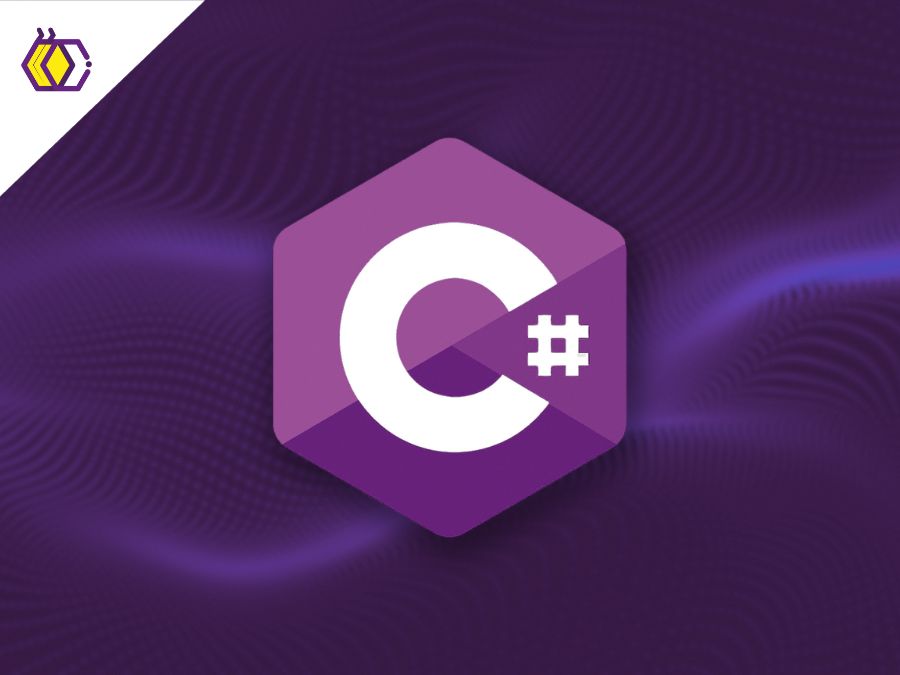

C#
(9 minutes read) C# (C Sharp) is one of the most important and requested languages nowadays. It is one of the three main programming technologies that use the letter “C” as a representation (the other two are C and C++). And as much as they are similar in some respects, they have differences between them. C# (C sharp) is an object-oriented programming language developed by Microsoft as part of its .NET platform. Since its release in the early 2000s, C# has become one of the most popular and widely used programming languages around the world. FEATURES OF C# Object Orientation: Like Java and C++, C# is an object-oriented programming language . This allows programmers to define and manipulate data as entity objects that combine state (attributes) and behavior (methods). Static Typing: C# is a statically typed language, which means that the types of variables are defined at compile time and cannot be changed at run time. Interoperability: C# offers excellent interoperability with other programming languages that run on the .NET platform. This is extremely useful for projects that need integration with legacy code or third-party libraries. Rich Set of Libraries: The .NET Framework, and more recently .NET Core and .NET 5 (and subsequent versions), offer a vast set of standard libraries that facilitate application development in many areas, from web development to computer science. data. Cross Platform: With the release of .NET Core, C# expanded its presence beyond Windows. It is now possible to run C# applications on operating systems such as Linux and MacOS. Modern Development: C# has continued to evolve over the years, adopting the best features and patterns from other languages as well as introducing its own innovations. Features like LINQ, lambda expressions, and async / await have made the language more expressive and powerful. C# APPLICATIONS Given its versatility, C# is used in a wide variety of applications. Below we list the most important ones: Web Development: With ASP.NET, C# is a popular choice for developing websites, web applications and APIs. Desktop Applications: From traditional Windows apps to modern Windows Store apps, C# is a leading choice for desktop development. Game Development: Through Unity, one of the most popular game engines in the world, C# has become a fundamental language in video game development. Mobile Apps: With tools like Xamarin, developers can use C# to build native mobile apps for Android, iOS, and Windows. Cloud Applications: With Azure, Microsoft's cloud platform, C# is often used to develop and host scalable applications in the cloud. WHY LEARN C#? Learning C# is a strategic choice for many programmers and aspiring developers for several powerful reasons. Here are some reasons why C# is a valuable programming language to learn: .NET Platform: The .NET platform, especially with the release of .NET Core and .NET 5 (and subsequent versions), has become cross-platform, meaning that code can run on Windows, Linux, and MacOS. This greatly expands the reach of C#. Performance and Security: .NET applications are known for their reliable performance and robust security features. Continuous Innovation: The C# language is constantly evolving, with Microsoft regularly adding new features and functionality, making it modern and current. Support and Community: A large global developer community and vast number of online resources (such as tutorials, forums, and documentation) ensure support for those learning or developing in C#. Career Opportunities: Due to the widespread adoption of C# in many industries, there is a constant demand for proficient C# developers. This translates to job opportunities and career growth. Interoperability: C# offers excellent interoperability, allowing developers to easily work with code from other languages. Development Tools: Visual Studio, from Microsoft, is one of the IDEs is the most advanced and feature-rich environment available, providing a powerful development environment for C# developers. Azure Ecosystem: With the growing popularity of Microsoft Azure as a cloud platform, knowledge of C# is especially beneficial for developing and implementing cloud solutions. Learning Curve: For those who are already familiar with languages like Java or C++, the transition to C# can be smoother as many of the concepts and syntax are similar. MAIN DIFFERENCES BETWEEN C, C++, and EC# C, C++, and C# are three distinct programming languages, each with their own characteristics, histories, and uses. Here is a general comparison between them: C LANGUAGE It was created in the 1970s. It is one of the oldest programming languages and is still widely used. It is a procedural language and provides low- level access to hardware. This makes C particularly powerful for developing systems and applications that require high performance. It is widely used in the development of operating systems, device drivers, and applications that demand performance and direct control over the hardware. C++ LANGUAGE C++ was created by Bjarne Stroustrup in the 1980s as an extension of C. It incorporates object-oriented programming elements, which allow the creation of classes and objects. However, it still retains the procedural programming capability of C and can be used in both styles. It also adds a rich standard library known as STL (Standard Template Library). It is used in applications that require high performance, such as games, simulations, and systems development. MAIN DIFFERENCES Paradigm: While C is primarily a procedural language, C++ adds support for object-oriented programming and C# is primarily object-oriented but also supports functional programming and components. Platform and Runtime Environment: C and C++ are generally compiled to native operating system code. C#, on the other hand, is generally compiled for Common Intermediate Language (CIL), which is then interpreted or just - in-time compiled to native code by the .NET runtime. Developer and Ecosystem: C and C++ are more "universal" languages without a single main developer, while C# is strongly associated with Microsoft and its ecosystem. CONCLUSION In summary, C# is a robust, modern, and constantly evolving programming language, remaining relevant and indispensable in today's IT landscape. Whether you're an experienced developer or someone looking to break into the world of programming, C# is an excellent option to consider. Learning C# opens doors to a wide range of applications and opportunities. Whether you're someone looking to take up a new game development hobby or a professional looking to diversify your skills, C# is a solid and worthwhile choice. And there? What do you think of our content? Be sure to follow us on social media to stay up to date!
Share this article on your social networks:
Rate this article:
[yasr_visitor_votes size=”medium”]



